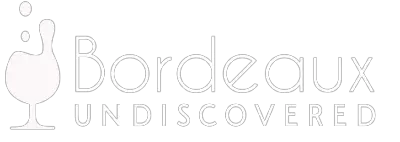Bernard Farges has been elected the new president of CIVB (Bordeaux Wine Bureau), succeeding Georges Haushalter, for a term of 3 years. The CIVB is the body that represents the Bordeaux wine industry: viticulture, trading and brokerage.
With a budget of 40 million euros in 2013, the CIVB represents 7055 wine, 300 trading houses, 95 brokers and 38 cooperative wineries covering the region’s vineyard of 276,758 acres (112 000 hectares).
The CIVB has 3 missions:
1. Marketing: developing awareness and reinforcing the image of Bordeaux wines in France and abroad through advertising campaigns, digital communications, public relations and media training.
2. Economic: providing knowledge of the production, market and marketing of Bordeaux wines in the world.
3. Technique: advancing knowledge, preserving the quality of the wines of Bordeaux and anticipating new requirements for environmental and food safety.
It will be interesting to see what direction Bordeaux wines will take over the next 3 years under Farges guidance. Georges Haushalter had a marketing background behind him; he studied at the Paris business school and as well as working for negotiant houses and wine makers (Cordier,
Compagnie Médocaine des Grands Crus, part of the Axa Millésimes group , who are owners of several chateaux including Pichon Baron, Suduiraut and Petit Village and Louis-Jadot in Burgundy) he has also worked in food marketing at Procter & Gamble and Pepsi Cola.
Farges has different strengths. He is a winemaker with 234 acres (95 hectares) in Mauriac (Entre Deux Mers), which he vinifies through a local cooperative in Sauveterre de Guyenne – a first for a president of the CIVB.
He owns Chateau De L’Enclos with his bother Christian which has been in the Farges family for 8 generations. He will continue to work on his family estate whilst undertaking his duties as president of the CIVB.
I’m delighted to see that smaller producers from less prestigious appellations will be represented at a national level. Farges is not a small time player though – he had been head of the Union of Bordeaux and Bordeaux Supérieur appellations (2006 – 2013) and from 2011 he was also president of the National Confederation of Appellations of
Origin Controlled (CNAOC). In addition, he served as Chairman of the Board of Directors of Bordeaux Agro Sciences (National School of Agricultural Sciences Bordeaux Aquitaine) for 5 years. He won the vote more or less hands down, as he was expected to.
Farges inherits the problem of the ongoing political fallout between China and France over wine dumping and was in Brussels last week arguing the case with the EU. His other priorities are to help restructure properties that are in economic difficulties.
I expect to see real progress here, which will be good for Bordeaux. Farges will have to make some tough decisions but potentially we could see renewed vigour on quality, modernisation and improved wine making techniques and land management that will pay off in the future.

